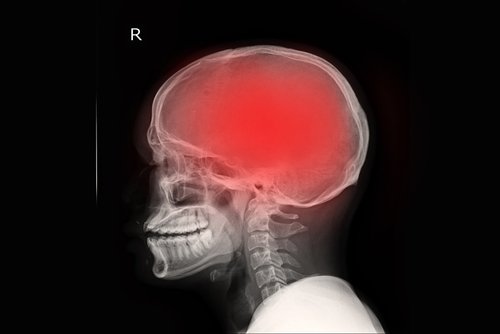Two Proteins Play Key Roles in Regulating Brain Inflammation, MS-related Study Shows
Written by |

Neuroinflammation is an essential process in the development and progression of several neurodegenerative diseases, including multiple sclerosis (MS), Alzheimer’s and Parkinson’s.
Researchers from the University of North Carolina School of Medicine have discovered that proteins known as NLRC4 and NLRP3 play key roles in regulating mechanisms involved in brain inflammation. Their research was in mouse models of MS.
The study, “NLR members NLRC4 and NLRP3 mediate sterile inflammasome activation in microglia and astrocytes,” was published in the Journal of Experimental Medicine.
“We need to better understand brain inflammation at the molecular level in order to treat neurodegenerative conditions,” Jenny Ting, senior author of the study, said in a press release. “Our study shows how two proteins that control inflammation are crucial to a particular kind of brain inflammation.”
It is not fully understood how inflammation starts, how it’s sustained, and how it contributes to neurodegenerative diseases. Scientists do know, however, that tissue injuries, rather than infections, trigger inflammation.
Previous studies have shown that when a disease is present, the body does not metabolize a fat molecule called LPC, or lysophosphatidylcholine. Instead of being converted to energy, the fat accumulates.
Researchers discovered that this occurs in patients with MS, ischemia, epilepsy, Alzheimer’s disease, schizophrenia, and spinal cord injury. LPC, also known as lysolecithin, helps activate pro-inflammatory mechanisms involved in these diseases’ neuroinflammation, according to previous studies.
The North Carolina team linked the NLRP3 and NLRC4 proteins to LPC-driven inflammation. The proteins are part of the immune system. Under normal conditions, they are responsible for activating inflammation to protect against infections or tissue damage.
The proteins mediated an LPC-driven inflammatory response in the brain cells of mice with MS, the researchers found. A key piece of evidence was an increase in NLRC4 in brain tissue from an MS mice model and from tissue samples from humans with MS.
Manipulating genes’ DNA to disrupt the production of the proteins — a process known as genetic ablation — led to less neuroinflammation in mice with MS. It also led to an improvement in the myelin layer that protects brain cells. Deterioration of myelin is a hallmark of neurodegenerative diseases.
“Essentially, we saw a profound reduction of the inflammatory disease in these mice,” said Haitao Guo, author of the study. “And where just one of those genes was absent, we didn’t see as pronounced a reduction of inflammation.”
The results offer clues to the inflammatory process in the brain that is responsible for so many neurodegenerative diseases. Additional studies could suggest whether the proteins could be used to develop treatments for MS and other diseases that involve neuroinflammation, the researchers said.


